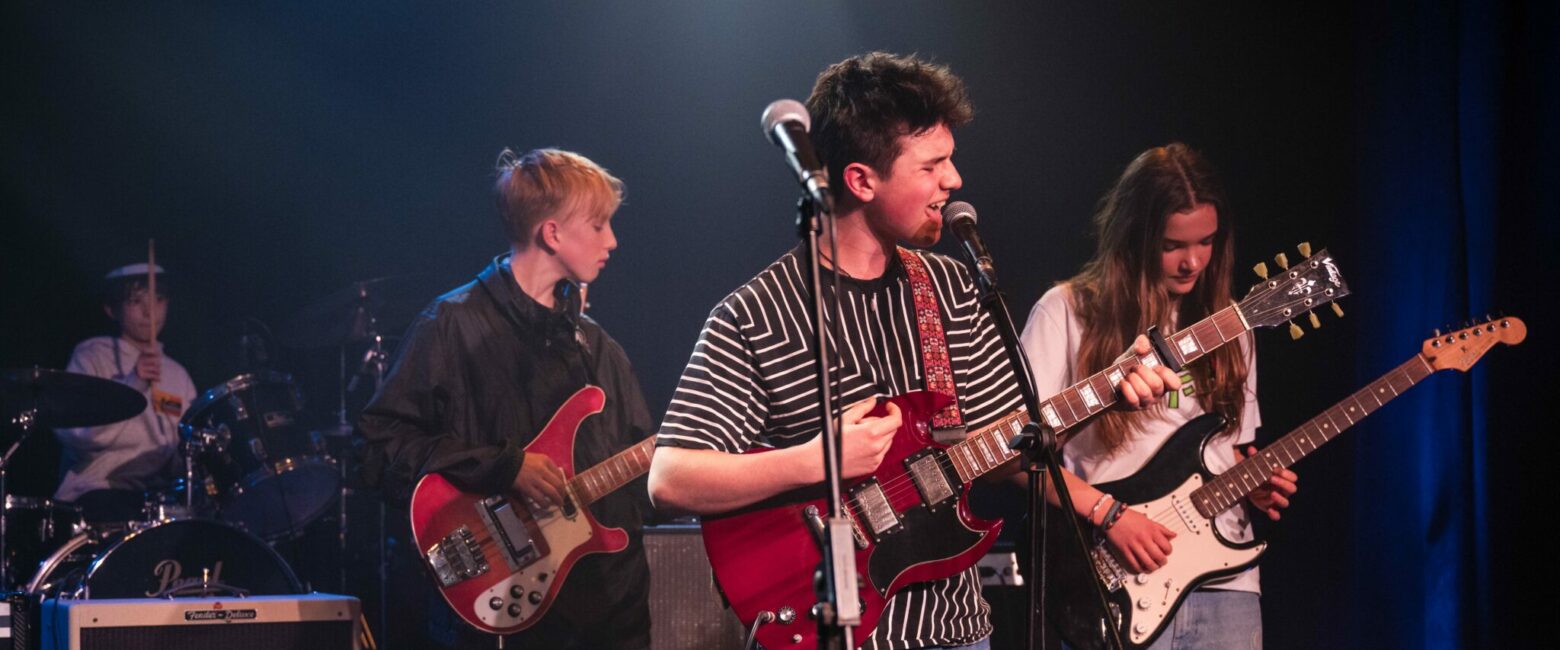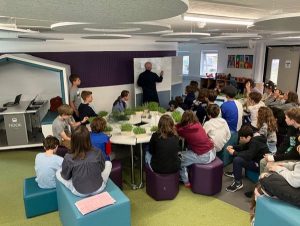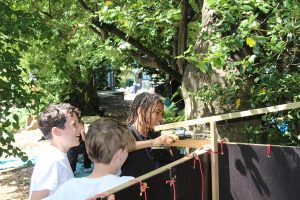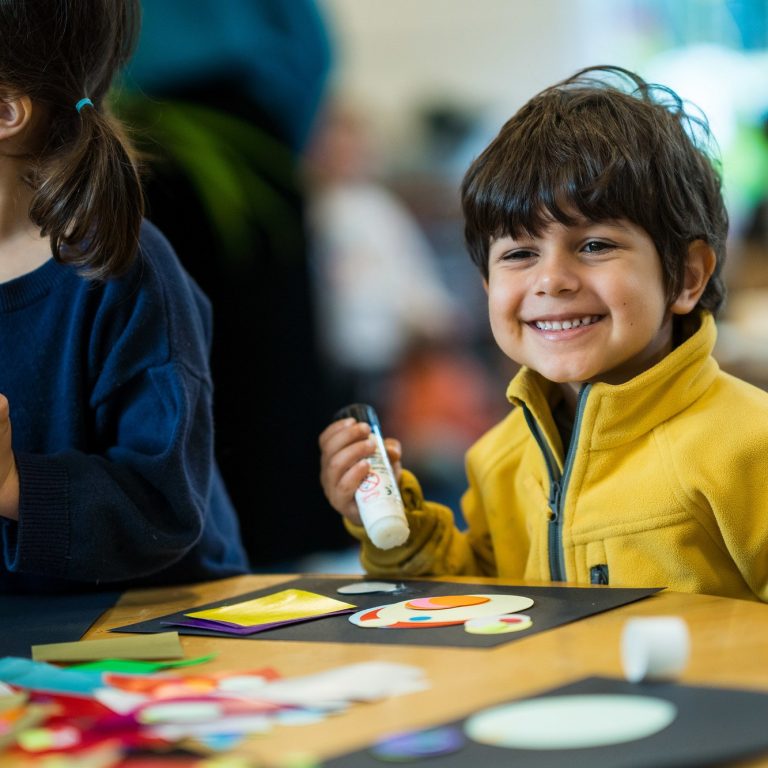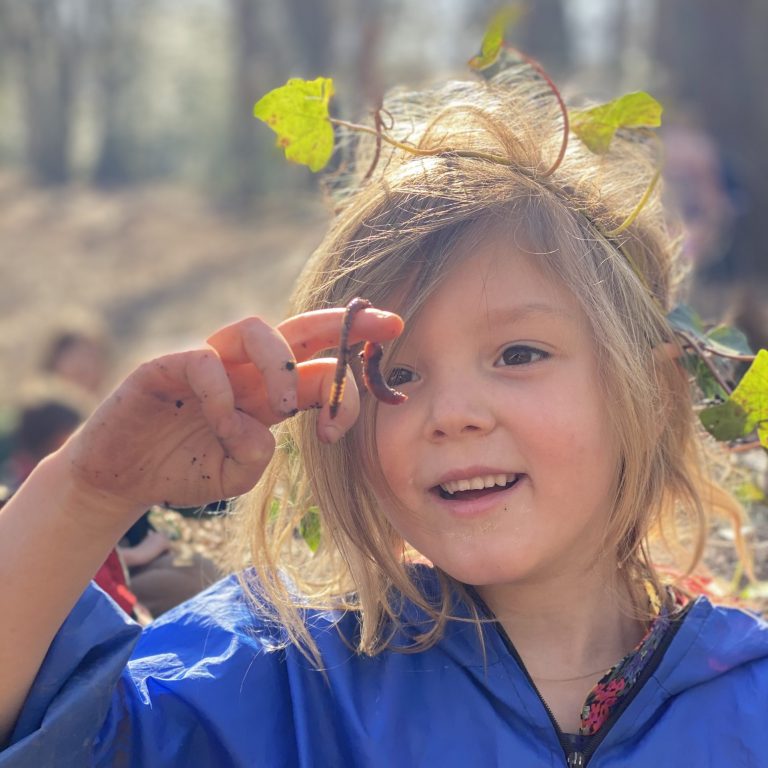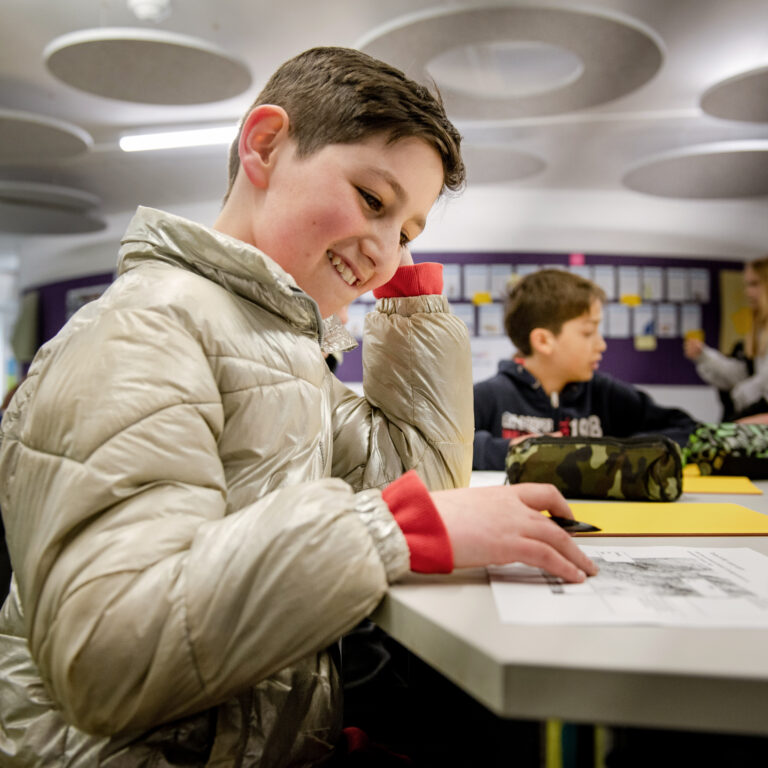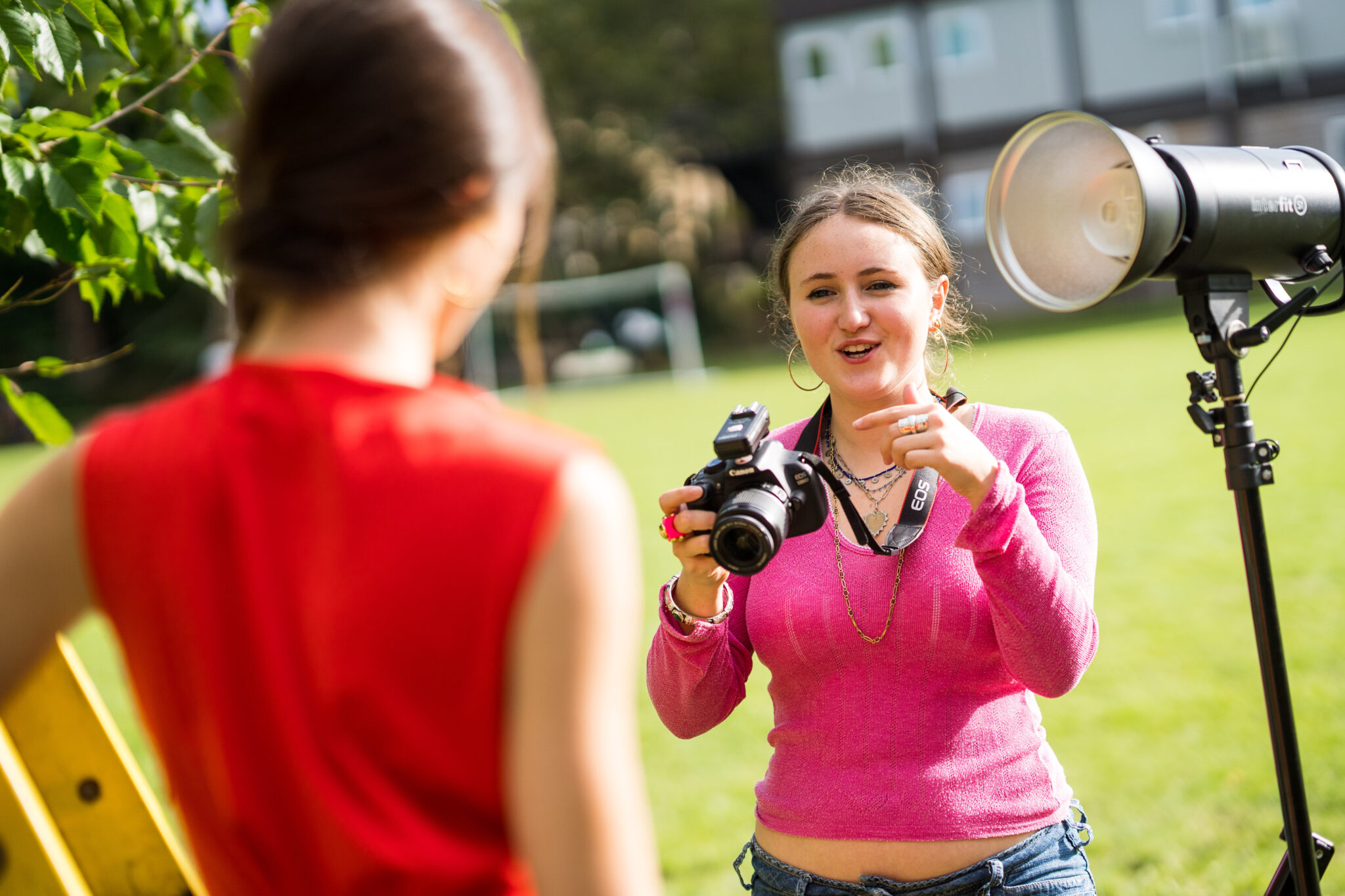Head’s Blog – Designing The Curriculum Of The Future
25th September 23
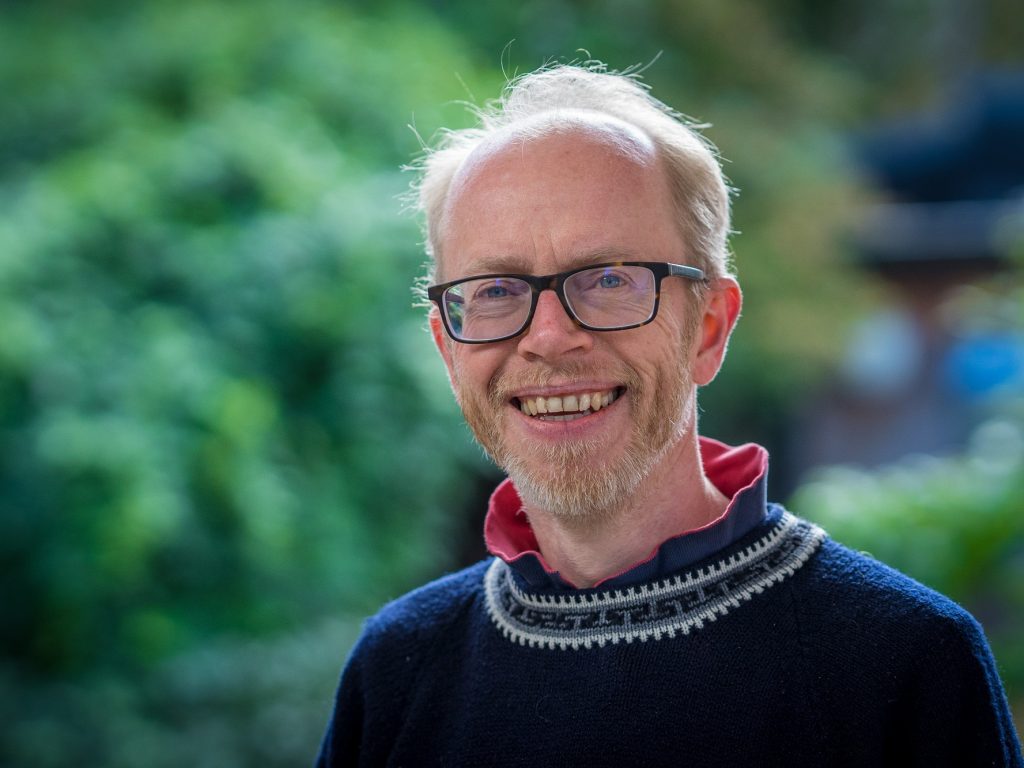
Deputy Head Al McConville shares insights from our journey towards reshaping assessment for young people.
“The voices calling for educational reform are growing in number and becoming more insistent. The drum is getting louder.
Labour promise a review of curriculum and assessment if they win power, very much along the lines for which Rethinking Assessment and the Edge Foundation have been advocating: solid foundations, breadth, life-readiness, relevance, and holistic assessment. The Conservatives are dropping hints about a broadening baccalaureate if they hold on; two leading independent schools have announced that they will move to a two GCSE model in the coming years. Others are heading in that direction. Is the house of cards about to fall? And if so, what will replace it?
As part of the kick off to our new school year, The King Alfred School staff welcomed Olly Newton, Executive Director of the Edge Foundation, and Liz Robinson, CEO of Big Education, to help us think about what the curriculum of the future should look like.
The current one isn’t working. To give just one example, the cost of skills shortages to the economy is a staggering £6.1 billion. Schools aren’t filling the pipeline with the right capabilities. Employers are increasingly focused on relevant experience and mindset, rather than academic credentials. We heard from Amanda Gethin, Global Talent Leader at EY; attitude, specific skills, and the ability to learn and unlearn are top of her wishlist, with traditional qualifications well down it.
Schools, she said, would do well to think about the curriculum through the lens of employment, and work backwards – not as some utilitarian means to an end, but so that young people are finding their passions, and developing their skill-sets so that they carry them on into life after school in the workplace. Young people are seeking fulfilment through ‘work-life harmonisation’ – not just work-life balance.
Liz Robinson shared the brilliant work that is happening at Surrey Square school, where their values-led culture connects students’ learning to real issues in their community, turning young people into well informed social activists, and effecting real change on issues like those facing asylum seekers who have no recourse to public funds, for example.
King Alfred School has always done things differently since our foundation 125 years ago, but the pace of change in the world means we constantly need to evaluate what we are doing, and ask whether we can do better.
What are we doing already which we are confident prepares our students well?
Students in our Lower School do much of their learning through an enquiry lens, which encourages the inquisitiveness and problem-solving mindset that Amanda Gethin tells us is so prized. They are immersed in the language of skills from a young age, using colourful puppets in the early years to embody the ideal learner; through frequent references to these they develop the ability to articulate their own learning processes well. They develop their confidence in formal speaking though student-led conferences, which are in lieu of traditional parents’ meetings. Instead of just hearing what the teacher thinks, pupils carefully prepare feedback for their parents on their own learning, and present it systematically. They are able to advocate for their views and critique their experience through a school council. They are leaders of their own learning.
This short film, made as part of the Big Education Next Big 10 project, showcases this enquiry-led learning in action:
An inter-disciplinary curriculum kicks in for years 6-8, also using an enquiry lens to address real world issues. Traditional subject matter is incorporated into authentic learning tasks, in which students explore the power of protest, or the ethics of space travel, or the relevance of monarchy, and importantly their work culminates in presentable outcomes; this could be a book, or a TED-style talk, or a shelter they have designed and built. The exhibition of these outcomes is a key opportunity to develop public-facing skills, as well as a powerful lever to do the work well in the first place! Feedback makes explicit reference to the collaboration, communication and creative thinking skills that are required to complete projects successfully. Students reflect together on their learning in ‘Crews’, who support and hold one another to account, making learning more than an individualistic process. Year 8 culminates in the extraordinary ‘Village Project’, where students build their own shelters, design their own community, rules and all, and live together in the woods for a week, building fires, cooking for themselves, designing activities, with as little adult input as we can safely allow! This is a powerful exercise in independence and collaboration.
As part of our work with Big Education we have also made this film about The Village to help share our practice with other like-minded schools:
As the students get older, we are replacing some GCSEs with our own courses, again with a more explicit skills focus. Global Challenges, for example, requires collaboration on social action projects designed to have an impact on the world, rather than just learn about it in the abstract. Students don’t just learn about the growing dementia problem in theory – they get out there and address it first hand in care homes. And they pursue a challenge that particularly speaks to them, and design an intervention, which they build into a Higher Project Qualification. Our UAL Drama course is far more immersive and flexible than its GCSE counterpart. Our new School Directed Course, KAS Literature, offers significantly more choice about how to respond to texts than its GCSE counterpart. All these new courses seek to give students greater independence, choice and life-readiness. More are coming.
In the Sixth Form we provide leadership opportunities and chances to serve the community, connect students up with our networks for work experience, and build in comprehensive careers and higher education advice.
What else could we do?
We think we’re doing pretty well, but we don’t want to rest on our laurels. As a staff we reflected on what might come next:
We can see that we need far greater engagement with employers and the wider community in which we live, and to build their expertise and experiences into our learning. We can be more authentic in the tasks that we set, and can provide more opportunities for students to get out of the school gates and work on real projects alongside adult counterparts. Work experience and community service, but not as you know them, and not just for a week after exams…
We know we have a long way to go in terms of our own relationship with sustainability. We all need a paradigm shift in the way that we live and work, and the students are going to inherit the mess that older generations have made of the environment. They need to feel that they understand the problem and can make a difference.
We need to acknowledge the widespread mental health challenges that adolescents are facing across the country, and build their resilience so that they can cope with a world facing serious challenges. That means taking some of the sting out of the high stakes assessment system, and helping pupils see their learning journey as continuous, not all pegged to sets of exams, and not all encompassed in the school years.
A big part of this, we feel, could be achieved through developing a ‘learner profile’ for each pupil: a digital record and reflection log to capture the full range of interests, achievements, and experiences that students have had, built over time to take out the cliff edge feeling of single high stakes moments. We’re already experimenting with these in pockets as part of our Next Big 10 partnership, and in collaboration with Rethinking Assessment, but we want to build these systematically throughout the age range, and have all students leave school with a portfolio of which they are really proud.
We acknowledge the calls from students for more ‘life skills’: how to understand personal finance; cook; organise an independent life. This has been the constant refrain from students across the country for decades.
We need to build up our suite of School Directed Courses, designed explicitly around our Deeper Learning Wheel, set up not only to acquire knowledge, but also to make explicit skills development, and provide opportunities to build desirable personal qualities. The curriculum we build determines what students are doing and thinking day to day, which dramatically effects who they become.
And we can do more to advocate for the holistic education we are already lucky to be able to deliver in our privileged section of North London. We can develop our partnerships with other schools, state and independent, to build the arguments for change across the system, and showcase the ways we already do this so that we fulfil better our aim to have an ‘impact on the world’. This was the aim of our founders.
What needs to happen at national level for wider change of this sort?
We are teachers, not policy experts, but we aspire to change the system. Here are some of the things we would like to see:
Less emphasis on exams, particularly GCSEs. That would mean changing the accountability metrics used by government with all their perverse incentives. For example, Progress 8 could be reduced to Progress 5, or fewer, so that there were still indicators of school performance, but not everything has to be used for that purpose. League tables must be de-emphasised. We would like to see greater variety on courses and assessment types offered by exam boards, with more emphasis on developing the kinds of skills that the OECD says will be useful in the future. Communication, collaboration, creative thinking. We would love to see a greater prizing of vocational qualifications. Closer collaboration between universities and schools is needed, and the role of Ofsted in state schools should be significantly altered.
We remain a school of idealists, but we feel increasingly excited that through our relationships with the wider educational community our idealism we can play a meaningful role in bringing real, and much needed change to the system.


